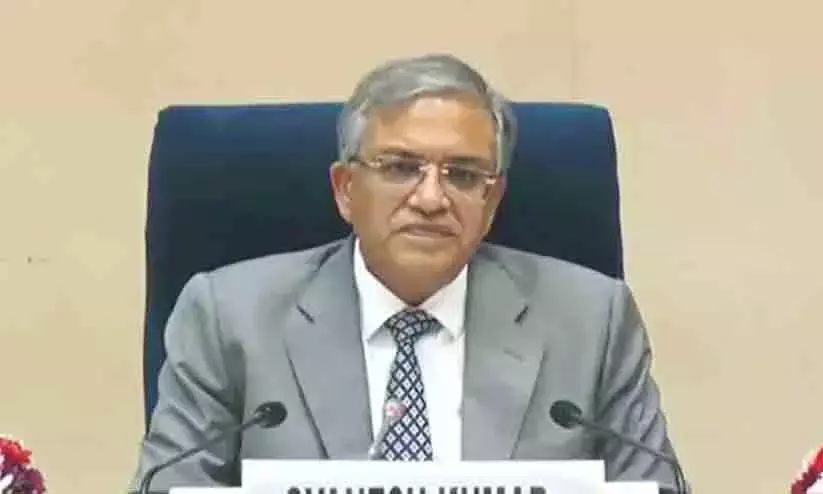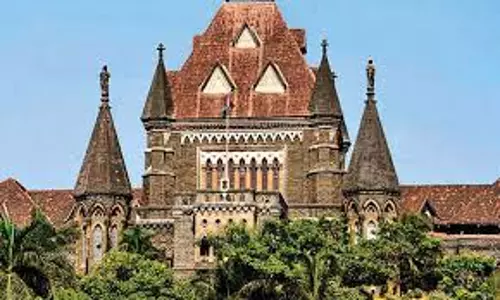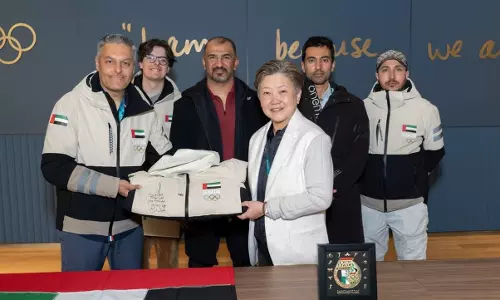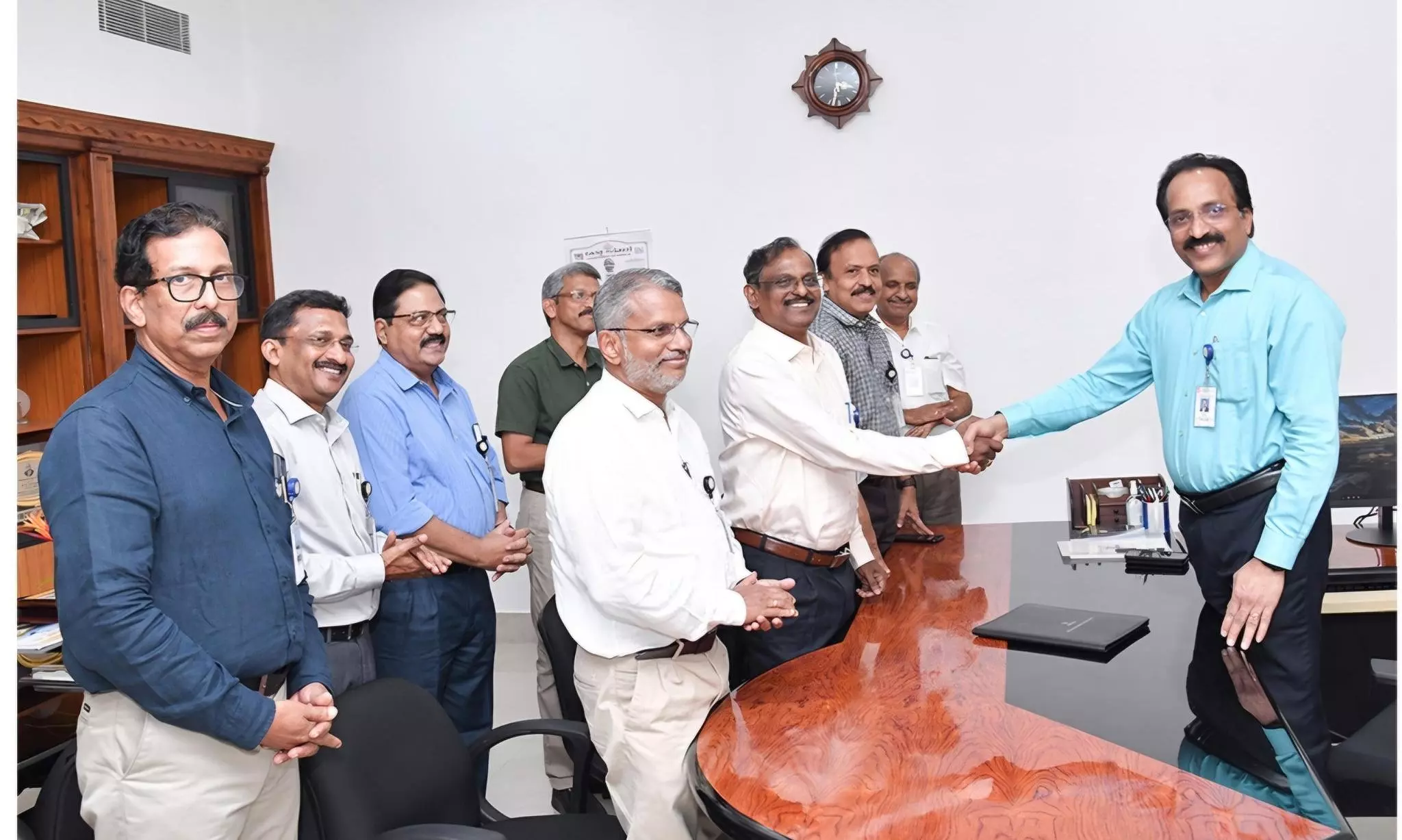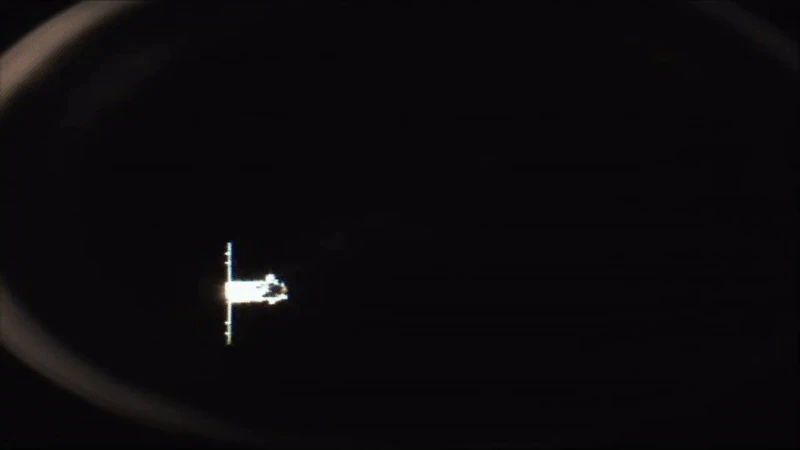
V Narayanan takes charge as ISRO chairman, succeeds S Somanath
text_fieldsBengaluru: Dr. V Narayanan, a distinguished scientist and veteran of the Indian Space Research Organisation (ISRO), has officially assumed charge as its Chairman, succeeding Dr. S Somanath. ISRO announced that Narayanan took over as the Secretary of the Department of Space, Chairman of the Space Commission, and Chairman of ISRO on January 13, 2025.
A seasoned expert in space technology, Narayanan previously served as the Director of ISRO’s Liquid Propulsion Systems Centre (LPSC), a critical facility responsible for the development of propulsion systems for launch vehicles and spacecraft. He also chaired the National Level Human Rated Certification Board for the Gaganyaan programme, India’s ambitious human spaceflight mission.
Narayanan began his career at ISRO in 1984 and has contributed extensively to the country’s space programmes over the past four decades. He became the Director of LPSC in 2018, gaining prominence as a leader in rocket and spacecraft propulsion technologies.
Narayanan hails from a modest background and is an alumnus of IIT Kharagpur, where he completed his M.Tech in Cryogenic Engineering and PhD in Aerospace Engineering. He was awarded the Silver Medal for securing the first rank in his M.Tech programme and later received the Distinguished Alumni Award in 2018 and the Life Fellowship Award in 2023 from IIT Kharagpur. Before joining ISRO, Narayanan briefly worked at TI Diamond Chain Ltd., Madras Rubber Factory, and Bharat Heavy Electricals Limited (BHEL).
Over his illustrious tenure at ISRO, Narayanan played a pivotal role in advancing India’s cryogenic technology. When international sanctions denied India access to cryogenic technology for the GSLV Mk-II vehicle, Narayanan led the development of indigenous solutions. He spearheaded the design of engine systems, developed critical software tools, and established the necessary infrastructure and test facilities for the Cryogenic Upper Stage (CUS), making it operational.
As the Project Director of the C25 cryogenic project for the LVM3 vehicle, he oversaw the development of the C25 cryogenic stage, powered by a 20-tonne thrust engine, which was instrumental in the maiden launch of the LVM3. His M.Tech and PhD research were integral to these breakthroughs, positioning India among a select group of nations with indigenous cryogenic technology.
Narayanan’s contributions extended to lunar and solar missions. He was instrumental in the success of Chandrayaan-2 and Chandrayaan-3, leading the development of the L110 Liquid Stage, the C25 Cryogenic Stage, and other propulsion systems. These advancements facilitated precise orbital insertion and a successful lunar landing. For the PSLV-C57/Aditya L1 mission, he directed the propulsion systems that placed the spacecraft in a halo orbit at L1, enabling India to study the Sun and achieve a significant milestone in space exploration.
He has also been a driving force behind the Gaganyaan programme, contributing to the human-rating of the LVM3 vehicle and the development of life support systems and propulsion systems for the crew and service modules. Narayanan chaired the Gaganyaan Certification Board, ensuring the rigorous validation of multiple systems critical to the mission.
Under his leadership, ISRO has progressed in next-generation propulsion systems, including the 200-tonne thrust LOX-Kerosene semi-cryogenic rocket, the 110-tonne thrust LOX-Methane engine, and electric and green propulsion technologies for spacecraft. These innovations will support upcoming missions such as the Venus Orbiter, Chandrayaan-4, and the Bharatiya Antariksha Station.
A Fellow of prestigious organizations such as the Indian National Academy of Engineering, the Aeronautical Society of India, and the Astronautical Society of India, Narayanan’s appointment is seen as a significant step toward propelling India’s space programme to greater heights.
With PTI inputs






